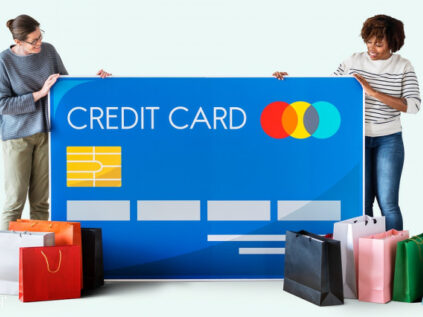Business Credit Score Basics
There are more national business credit bureaus than consumer credit bureaus and a wider variety of business credit scores and factors that impact those scores.
Business Credit Tradelines
There are two types of credit tradelines for a company, a financial tradeline and a vendor tradeline.
- Financial Tradelines: A financial tradeline is an extension of credit from a bank or financing company, for example a business loan from a bank, commercial credit card, or equipment lease financing.
- Vendor Tradelines: Vendor tradelines can have a variety of names, such as merchant tradeline, supplier tradeline, vendor tradeline, trade credit, vendor account, or even a corporate tradeline. Regardless of the name, a vendor tradeline is a report from a merchant or supplier to a business credit bureau about a specific company’s payment history when the supplier or merchant has extended them credit. An example of this would be an office supply company extending net-30 terms to a customer to pay an invoice for a delivery of office supplies.
Which type of tradeline is more important? Well, it may depend on your objective. If your goal is to get net-30 terms with a supplier, they will typically look at your payment history on similar types of vendor tradelines. If your goal is to get a loan or credit card for your company, a financial tradeline is likely going to be more important to the lender.

Business Credit Bureaus and Business Credit Scores
3 major consumer credit bureaus, there several business credit bureaus. Some of the major national business credit bureaus and business credit scores are listed below.
1 . PayNet
One of the leading financial tradeline focused credit bureaus. The primary score used by lenders using PayNet to make credit decisions is the PayNet MasterScore. The PayNet MasterScore is calculated using the largest database of business loans and term leases in the nation. The PayNet MasterScore is used primarily for financial institution lending and leasing decisions. PayNet was acquired by Equifax in 2019 and operates as an independent division of Equifax.
2 . Equifax
Being one of the major consumer credit bureaus, Equifax is also one of the nation’s leading business credit bureaus. Equifax offers multiple business credit scores. Two of its primary business credit scores are the Equifax Business Delinquency Score, which predicts the likelihood of severe delinquency on a vendor or supplier account and the Equifax Business Delinquency Financial Score which determines the likelihood of severe delinquency on financial accounts. Equifax business credit scores include both company principal and company credit information.
Equifax Business Delinquency Financial Scores range from 101 to 650, the higher the score the better, or “0” if the company has a bankruptcy, and “null” if it has no credit history.

3 . Dun & Bradstreet PAYDEX Score
Dun & Bradstreet is a business credit bureau that collects information on vendor tradelines. D&B calls these ‘Trade References’. These records can include on-time and early payments or overdue debts and bills that have been sent to collections.
The PAYDEX Score is a dollar-weighted indicator intended to reflect a business’s past payment performance. Companies receive a score between 1 and 100, where a higher number represents a greater likelihood that a business will pay its debts on time. The PAYDEX score is based entirely on payment history.
PAYDEX is primarily used by vendors and suppliers to judge a company when determining what terms to extend on trade credit (e.g., net 30, net 60, etc.) Typically, the better the score, the more generous the terms extended by the vendor. Your PAYDEX score can be important if you are seeking vendor terms or vendor financing, because having more time to pay your bills may improve your company’s cash flow.
Dun & Bradstreet may consider trade references from up to 875 individual vendors when determining your company’s PAYDEX Score and your company will need about 3 vendor tradelines reported to generate a PAYDEX score.
Small Business Financial Exchange (SBFE)
The Small Business Financial Exchange is similar to a credit bureau, but it is technically a data exchange for small business credit information. It was established in 2001 and is member-owned by small business lenders. Members of the SBFE contribute data on companies they do business with, in exchange they can access data and credit reports generated by SBFE certified vendors. A lender must provide information to the SBFE to get information from the SBFE. SBFE membership is only open to companies that originate small business credit obligations, own small business credit obligations, or service small business extensions of credit. For example, banks, credit unions, credit card issuers, and leasing companies can all be SBFE members.
The SBFE collects and distributes data elements for small businesses, including the following
- Loan payment information. This includes payments your company makes, or does not make, on time to vendors, lenders, or suppliers and your credit limits for any business accounts.
- Business lease payment information and history.
- Credit card payment history
- Business identification information. For example; legal business name, EIN, DUNS number, corporate address, and NAICS code
Unlike the other business credit bureaus, the SBFE does not calculate or provide credit scores. The SBFE provides data it collects to a limited set of vendors such as, Equifax, Experian, Dun & Bradstreet, and LexisNexis who incorporate that data into the business credit scores they offer to other members of the SBFE.
Build Business Credit Using Your EIN
Build business credit for your company, without using your personal credit